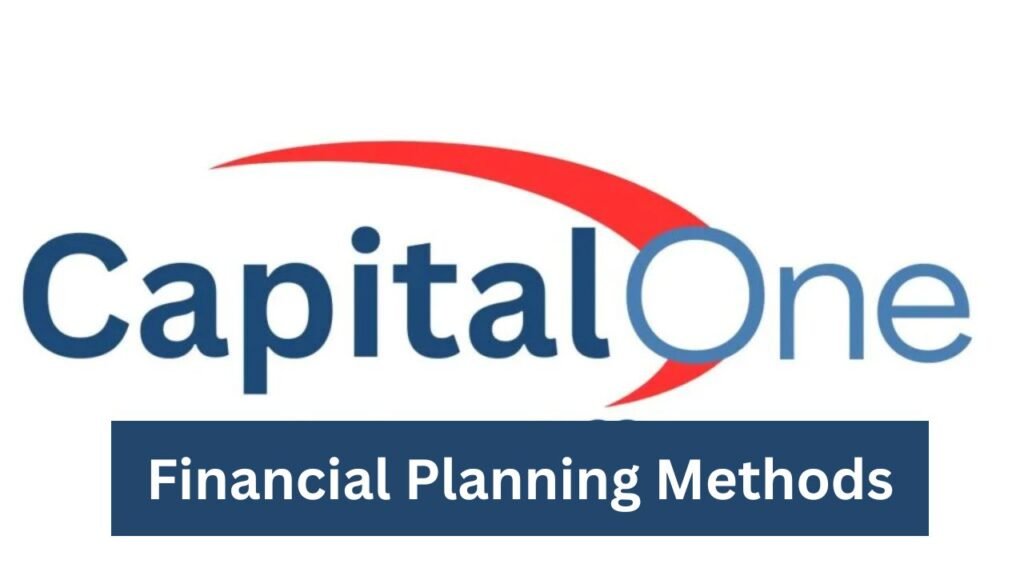Financial planning is the cornerstone of long-term success because it gives people a systematic approach to achieving their financial objectives and protecting their future. People must now use complete financial preparation methods that strike a balance between their current requirements and their long-term goals due to the constantly shifting economic landscape. Through the use of goods like a Capital One credit card and unique offers from reliable financial partners like Getmyoffer.CapitalOne.com, the following blog explores modern methods, useful advice, and essential stages to creating an efficient financial strategy.

Finding out How Important Financial Planning Is
Financial planning is the process of developing a thorough plan that matches present financial resources and expenses with objectives for the future like retirement savings, purchasing a home, or educational finance. Through smart financial oversight, people may control risks, make smart investments, and seize expansion prospects. Financial planning is a complete strategy that includes risk evaluation, investment planning, and debt management. It goes beyond just creating a budget and conserving money.
Understanding one’s existing financial status is often the first step on the path. They look at their earnings, keep tabs on their spending, and establish savings objectives. Users gain the ability to manage their finances and make wise choices that set them up for future success thanks to this process.
Essential Techniques for Successful Financial Planning
The first step in any sound financial strategy is to establish specific, achievable goals. Clarified goals help in directing choices and maintaining focus, whether one is saving for a significant purchase, retirement planning, or emergency fund building.
1. Set Specific Financial Objectives
- Short-term Goals: Start a savings fund, pay off small bills, or save for a vacation.
- Long-term Objectives: Include financing for school, retirement preparation, or house acquisition.
Long-term goals can be broken down into smaller, more attainable phases so that people can track their progress and modify their plans as their circumstances change.
2. Establish a Reasonable Budget
The primary component of any effective financial strategy is a reasonable budget. People might find areas during which they can cut back on spending and devote more money to their objectives by keeping track of their income and costs.
- Track Spending: Keep track of your everyday spending using apps and financing instruments. A thorough analysis of spending habits frequently identifies areas where non-essential expenses might be reduced.
- Put Savings First: Make recurring payments to a specific account to automate savings. This “pay yourself first” strategy guarantees steady contributions to financial goals.
3. Control and Lower Debt
An essential part of financial planning is debt management. The greatest of intentions can be derailed by high-interest debt, so it’s important to swiftly settle existing obligations.
- Debt Reduction Techniques: Techniques such as the Debt the platform and the Debt Snowball are helpful in methodically lowering debt. While the Debt Avalanche technique targets high-interest debt, the Debt Snowball method works on paying off lower accounts first.
- Consolidate Debt: In certain situations, combining many debts into one loan with a reduced interest rate can make payments easier and cut total interest expenses.
4. Make Future Investments
Investing is a strategic instrument for attaining long-term financial security, not just a means of increasing money. While optimizing returns, an investment portfolio with variety can assist in risk management.
Investing in a range of asset types, such as bonds, stocks, and real estate, is known as growth. The performance of a portfolio as a whole is less affected by market volatility when it is expanded. Make investments to retirement schemes like a retirement savings plan or 401(k). Such accounts can greatly increase long-term savings and provide tax benefits.
5. Take Advantage of Special Financial Offers
Exclusive deals and innovative financial goods may help encourage careful financial planning even more. A Capital One credit card, for example, could be beneficial for people who use their money carefully. Cards like these frequently include cash back, incentives, and other benefits that can be used to fund a budget. Additionally, looking into websites such as Getmyoffer.CapitalOne.com or Getmyoffer.CapitalOne.com gives access to exclusive offers and information that helps better manage daily expenses and finances.
Through Sum Up – Real-Life Impact
Consider a family that puts a lot of effort into juggling long-term objectives with daily costs. The current financial status was improved, and they also put themselves on a route to a secure future by setting clear goals, making a thorough budget, and gradually paying off debt. To efficiently manage their spending, they took advantage of special deals from websites like Getmyoffer.CapitalOne.com. They also utilized a Capital One credit card to accrue incentives that helped them save even more money. Everyone was able to make investments in their future, create an emergency fund, and eventually attain financial security thanks to this complete strategy.